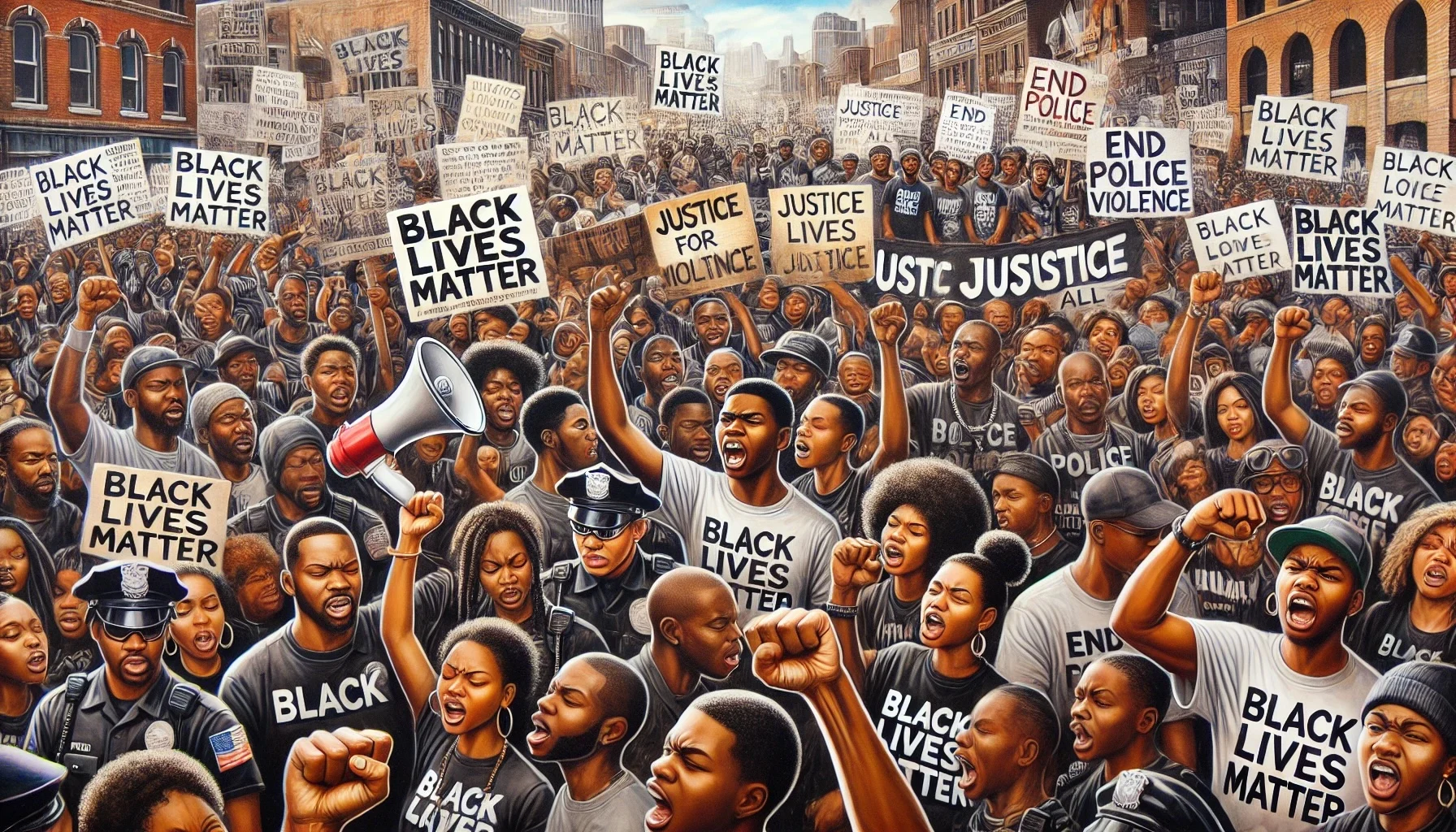
The Death of Eric Garner
by: The Calamity Calendar Team
July 17, 2014
The Confrontation
On a warm July day in 2014, the streets of Tompkinsville, Staten Island, buzzed with the usual hum of city life. Among the familiar faces in the neighborhood was Eric Garner, a 43-year-old father of six, known for his warm presence and friendly demeanor. Garner had his share of struggles, battling asthma, heart disease, and obesity. Yet, his greatest burden that day would come not from his health, but from an encounter with law enforcement that would end in tragedy.
The trouble began when NYPD officers, including Officer Daniel Pantaleo, approached Garner outside a beauty supply store. They suspected him of selling loose, untaxed cigarettes—a minor offense for which Garner had been previously arrested. Frustrated by what he felt was repeated harassment, Garner denied the accusations vehemently.
The Attempted Arrest
The confrontation quickly escalated as officers moved to arrest Garner. Despite his protests and visible agitation, Officer Pantaleo placed him in a chokehold—a maneuver explicitly prohibited by NYPD policy. Garner, taken by surprise, struggled as he was forced to the ground. The scene turned chaotic as multiple officers restrained him, pressing his body into the unforgiving pavement.
Amidst the struggle, Garner’s voice rose above the commotion. “I can’t breathe,” he gasped repeatedly—eleven times in total. His desperate pleas, however, went unheeded. The officers maintained their grip, and within moments, Garner lost consciousness.
Thanks for subscribing!
The Aftermath
As Garner lay motionless on the ground, immediate medical attention was conspicuously absent. Paramedics arrived on the scene but failed to administer CPR, even as Garner’s life hung in the balance. He was transported to the hospital, where he was pronounced dead approximately an hour later.
The cause of death, as determined by the medical examiner, was a combination of compression of the neck, compression of the chest, and prone positioning during physical restraint by police. The manner of death was ruled a homicide.
Legal Proceedings and Public Outcry
The news of Eric Garner’s death spread rapidly, sparking a wave of outrage and sorrow. Garner’s family, friends, and community members demanded justice. In December 2014, a grand jury’s decision not to indict Officer Pantaleo ignited widespread protests. Chants of “I can’t breathe” reverberated through the streets of New York City and beyond, as thousands rallied against police brutality and systemic racism.
The U.S. Department of Justice launched a civil rights investigation, but in July 2019, they too declined to bring charges against Pantaleo. However, the NYPD’s internal disciplinary process led to Pantaleo’s dismissal from the force in August 2019, along with the loss of his pension benefits.
A Movement is Born
Eric Garner’s death became a catalyst for the burgeoning Black Lives Matter movement, emphasizing the urgent need for police reform and accountability. The incident highlighted the deadly consequences of excessive force and the systemic issues within law enforcement that disproportionately affect African American communities.
In response to the public outcry, the NYPD implemented several policy changes. Officers underwent retraining on the use of force and de-escalation techniques, and body cameras were introduced to increase transparency and accountability. The impact of Garner’s death also reached the legislative arena. In June 2020, New York State passed the Eric Garner Anti-Chokehold Act, criminalizing the use of chokeholds by police officers.
Continuing the Fight for Justice
Eric Garner’s legacy lives on through the continued efforts of his family and advocates. His mother, Gwen Carr, has become a prominent voice in the fight for police reform. Working with various organizations, she tirelessly campaigns for greater accountability and systemic change.
The phrase “I can’t breathe” has transcended its origin, becoming a rallying cry for those protesting against police violence and racial injustice. Garner’s death serves as a stark reminder of the need for continued vigilance and action to ensure that such a tragedy never happens again.
Eric Garner’s story is a somber reflection of the struggles faced by many in the fight against systemic racism. Yet, it also stands as a testament to the power of collective action and the enduring hope for a more just and equitable society.
Stay in the Loop!
Become a Calamity Insider and get exclusive Calamity Calendar updates delivered straight to your inbox.
Thanks! You're now subscribed.